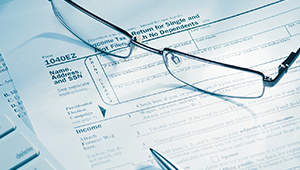9 March 2011
Almost all local authorities in England will freeze council tax in April after taking advantage of the government’s £650m incentive fund, according to CIPFA’s annual survey.
The CIPFA survey, published today, shows the
average Band D English council tax bill will be £1,438.87 for the year from
April 1, a marginal reduction of 35p on last year.
The fall reflects the fact that some local authorities, such as Windsor & Maidenhead and Bedford, are marginally cutting their council tax. In London, there will be an average reduction of 21p, in metropolitan councils 93p and in unitary councils 16p.
A handful of slight increases in shire areas – at an average of 6p per household – were attributed to parish councils, which are not subject to Westminster constraints.
CIPFA said authorities had ‘responded positively’ to the £650m government grant scheme, which gives councils the equivalent of a 2.5% council tax rise if they don’t increase the levy. The measure was announced in last year’s Comprehensive Spending Review and followed a commitment in the coalition agreement.
The survey contacted 278 billing authorities and 96 precepting authorities, with a response rate of 80% and 98% respectively.
CIPFA chief executive Steve Freer told Public Finance that freezing council tax would help authorities ‘sell reductions in sensitive services to local people’.
He added: ‘There have already been marches and demonstrations in parts of the country. In a sense it would be making that position even more difficult if the council tax was increasing. At least we are not asking people to accept lower services for a higher price.’
The survey also shows that police and fire authorities in England intend to freeze their precepts. In Wales, where ministers did not impose a freeze, only one unitary authority, Caerphilly, is not increasing its council tax. Rises among the others are between 3% and 4%. Welsh police authorities are increasing precepts by up to 5%.
Local Government Secretary Eric Pickles commented: ‘Council tax doubled under Labour. But the new government has frozen council tax, saving hard-working families and pensioners up to £72 this year. We have scrapped Labour’s council tax revaluation which would have hammered middle England, and we are giving local residents new rights to veto excessive council tax rises in the future. This is real help now to assist with the cost of living.’
But Tony Travers, director of the Greater London Group at the London School of Economics, told PF that local authoritieswould probably have frozen the tax without the extra money, saving the Treasury a considerable sum.
With local elections this year, a general sense of austerity and residents already being hit by high inflation, councils would have been unlikely to put up the tax anyway, he claimed.
Travers said: ‘Government would have got something quite close to a 0% increase without paying this, saving the Exchequer £650m... The government has perhaps paid quite a lot of money here to achieve not very much’.
He added: ‘Constraints on council tax are hardly evidence of localism but we have to say on this occasion councils have volunteered for this position.’
CIPFA also today reiterated its warning that finance officers were ‘concerned’ about the risks associated with this year’s tighter budgets.
‘We are dealing with budgets where it feels all of the stability [of past years] has been taken away and almost every service in the council will be subject to significant changes and reorganisation...Every one of these change projects runs the risk of not going according to plan or costing a bit more than anticipated or not saving as much as anticipated or taking longer,’ said Freer.
He added that finance staff understood that, when making cuts, it was ‘quite reasonable to look first at back office and be most reluctant to cut the front line’.
But Freer added: ‘However, what finance officers would all plead for is recognition that if you want to run a really good organisation, delivering good front line services, you do actually need some of the things provided by the back office. You need leadership training and development, good IT and you need good finance services and advice.’



















